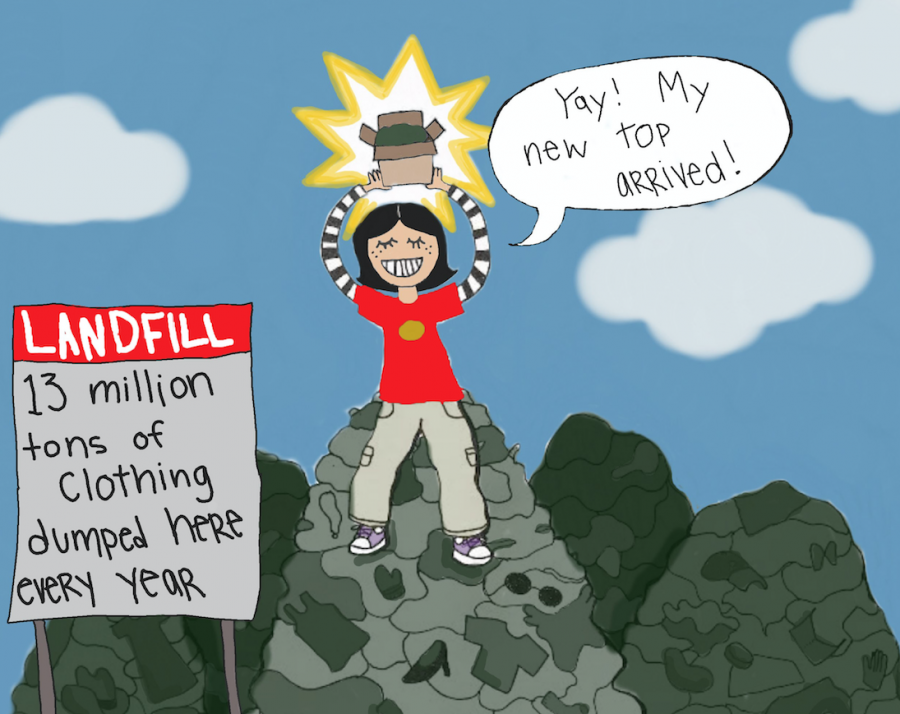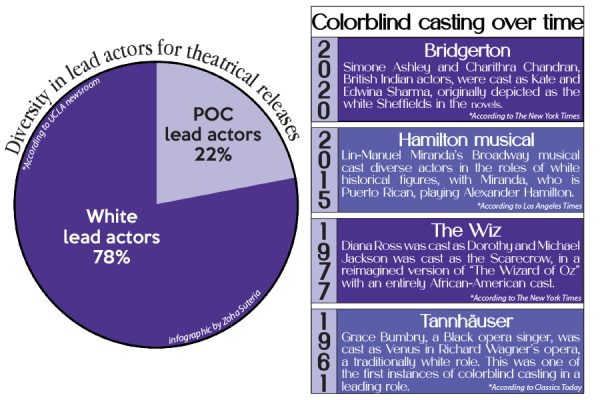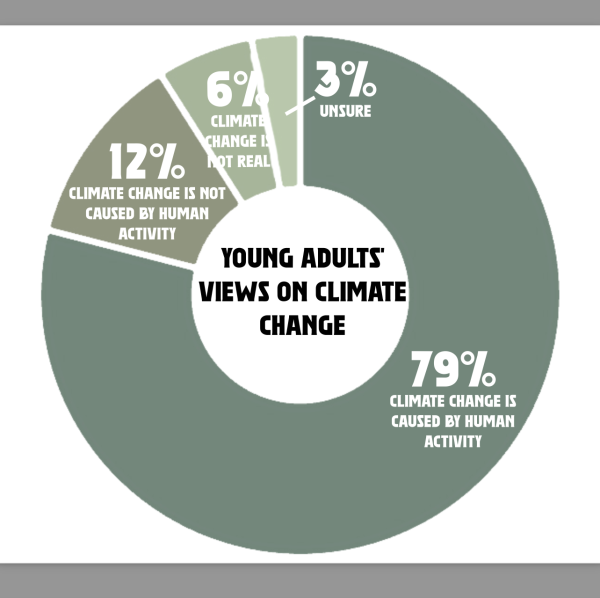Fashion: from trendiness to sustainability
February 12, 2021
Sweater vests! Leather blazers! Juicy Couture tracksuits!
These funky fashion trends took 2020 by storm. As we kick off 2021, fashion-lovers across the nation await the new trends that will soon replace last year’s styles.
However, before we stuff our once-trendy tracksuits in the back of a dresser drawer and invest in whatever new style comes about, we should take a moment to think about how these actions may harm the environment.
The fashion industry is one of the most polluting industries in the world, so until we can find meaning behind how we dress beyond just keeping up with the latest trends, we are going to be stuck in an environmentally unsustainable loop of purchase, throw away and repeat.
Fashion trends are cyclical, so when something goes out of style, something new will always come in. The items that leave will likely end up in a landfill and the items that arrive will likely contribute to immense pollution. It is nearly impossible to keep up with this fast-paced industry in a sustainable way.
The fashion industry accounts for 10 percent of global carbon emissions, according to The World Bank. This is not a shock, as consumers are purchasing, on average, 60 percent more clothing than they did in 2000. Every year, about 70 pounds of this clothing is thrown away per person.
This is a truth I have struggled with recently. As a self-proclaimed shop-a-holic, with a tendency to spend my paychecks on turtlenecks and pastel pants, I know how difficult it is to avoid the allure of the latest, chic trends. I often try to forget the pounds of clothes that lay dormant in the back of my closet, awaiting their sad death in a landfill with the rest of the world’s outdated wardrobes.
Even though I try my best to shop sustainably, fashion trends are still fuel for hyperconsumerism. Consumers are plagued with an incessant need to purchase copious amounts of clothing because if you don’t keep purchasing, your clothes will quickly go out of style.
It is clearly difficult to be an ethical trend follower—fashion companies advertise and produce far too much clothing for that ever to be possible. I don’t fault consumers for the abhorrent practices of large corporations but I do believe that these issues call for a re-evaluation of how we view fashion.
Should we only be dressing a certain way because everyone else is?
Should we surrender individuality in favor of cheap, convenient, mass-produced styles?
Should we buy clothing just so we can throw it away a few years later?
To me, the answer is a clear “no” because I know clothing has so much more potential than that.
My wardrobe is a small representation of who I am. I wear bright colors when I feel happy and structured blazers when I feel powerful. I wear silly clothes when I want attention and button-downs when I want people to know I’m queer. I shop secondhand as often as possible, and I graze Goodwill racks for pieces that nobody else owns—I’m quite proud of my oversized woven jacket that depicts the entirety of Route 66.
But for all that fashion means to me, it can mean a million other things to someone else. You can dress to feel confident, to stand out, to express your gender or just to be comfortable.
The important thing is to find a meaning that isn’t solely rooted in keeping up with the latest trends, because the more you strive to dress “in style”, the more you will inevitably have to consume to do so.
There is nothing wrong with treating yourself to a couple items from a fast fashion company or using trendy clothes to feel like you are a part of a community. But, if you can find a meaning that allows you to purchase long-lasting clothing from thrift stores or sustainable brands and support fast fashion companies only in moderation, you will soon build a sustainable wardrobe that will make you happy for years to come.
It is time to stop viewing fashion solely as an avenue towards “trendiness” and to instead approach fashion with intrinsic meaning and respect for the world around us.















